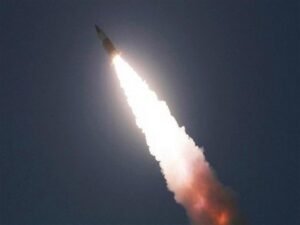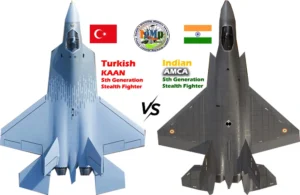Source : Press Trust of India (PTI)

Australian Defence Review : Australia must continue to expand practical cooperation with India
New Delhi: Australia must continue to expand its military relationships and practical cooperation with key powers, including India, a landmark defence strategic review released by Canberra has said.
It said China’s assertion of sovereignty over the South China Sea threatens the global rules-based order in the Indo-Pacific in a way that adversely impacts Australia’s national interests.
The review also highlighted the emergence of “major power” competition in the Indo-Pacific and said it has the potential to threaten Australian interests in the region.
“No longer is our alliance partner, the United States, the unipolar leader of the Indo-Pacific. Intense China-US competition is the defining feature of our region and our time,” it said.
“Major power competition in our region has the potential to threaten our interests, including the potential for conflict. The nature of conflict and threats have also changed,” it added.
The report said Australia is a significant Indian Ocean state with the longest coastline in the region.
“Australia must continue to expand its relationships and practical cooperation with key powers, including Japan and India,” it said, adding that Canberra also needs to invest in regional architecture.
The report has been written by former head of Australia’s defence force Angus Houston and former defence minister Stephen Smith.
“For military planning, in terms of our strategic geography, the primary area of military interest for Australia’s national defence is the immediate region encompassing the north-eastern Indian Ocean through maritime Southeast Asia into the Pacific,” the report said.
It said Australia’s approach to statecraft must include measures internal and external to Australia and build on certain actions.
Internal measures, it said, included increased defence and national security spending, the reorganisation of elements of the national intelligence and substantial investments in cyber security.
“External approaches have included measures such as: the adoption of the strategic framework of the Indo-Pacific; expanding regional strategic multilateral, trilateral and bilateral partnerships, including the reinstatement of the Quad partnership with Japan, India and the United States,” it said.
The report said a stable relationship between Australia and China is in the interests of both countries and the broader region.
It said Australia will continue to cooperate with China “where we can, disagree where we must, manage our differences wisely, and, above all else, engage in and vigorously pursue our own national interest”.
“China’s military build-up is now the largest and most ambitious of any country since the end of the Second World War. This has occurred alongside significant economic development, benefiting many countries in the Indo-Pacific, including Australia,” the report said.
“This build-up is occurring without transparency or reassurance to the Indo-Pacific region of China’s strategic intent,” it said.
“China’s assertion of sovereignty over the South China Sea threatens the global rules-based order in the Indo-Pacific in a way that adversely impacts Australia’s national interests. China is also engaged in strategic competition in Australia’s near neighbourhood,” the report said. Australian Defence Review Australian Defence Review Australian Defence Review Australian Defence Review Australian Defence Review IgMp






